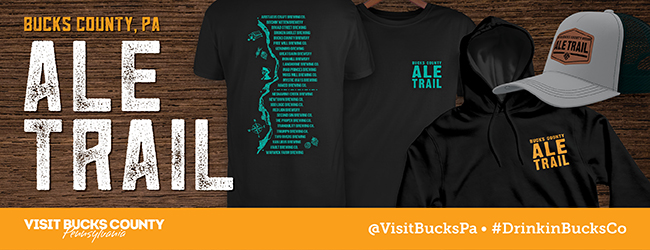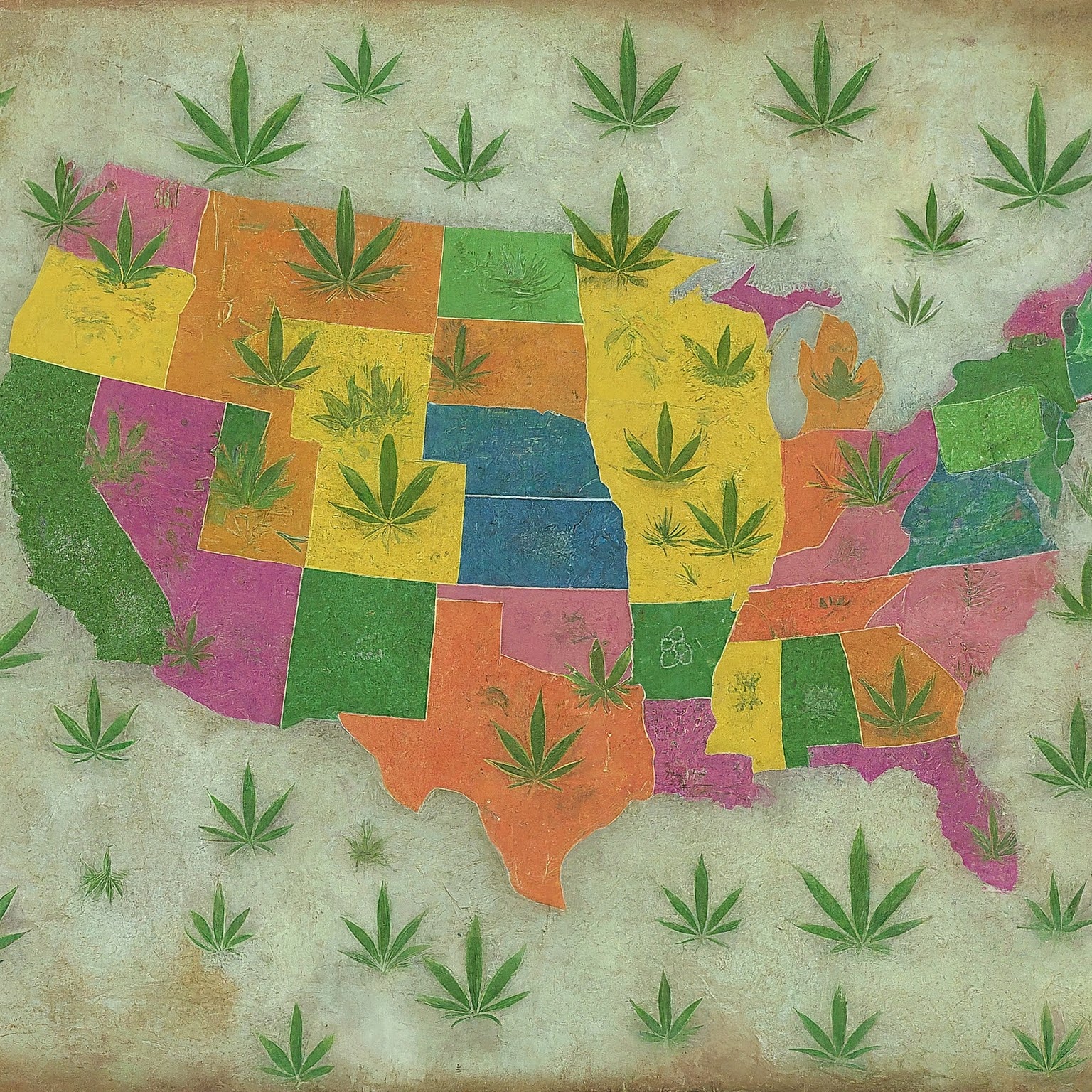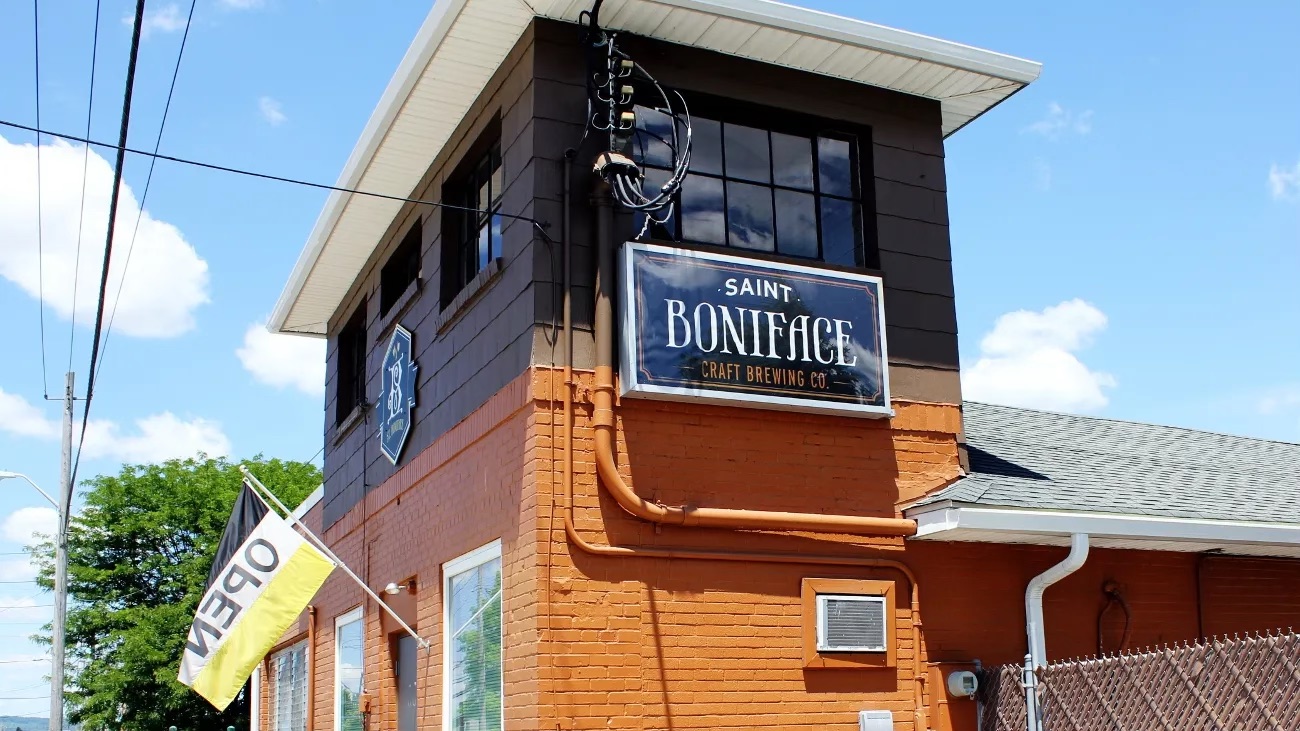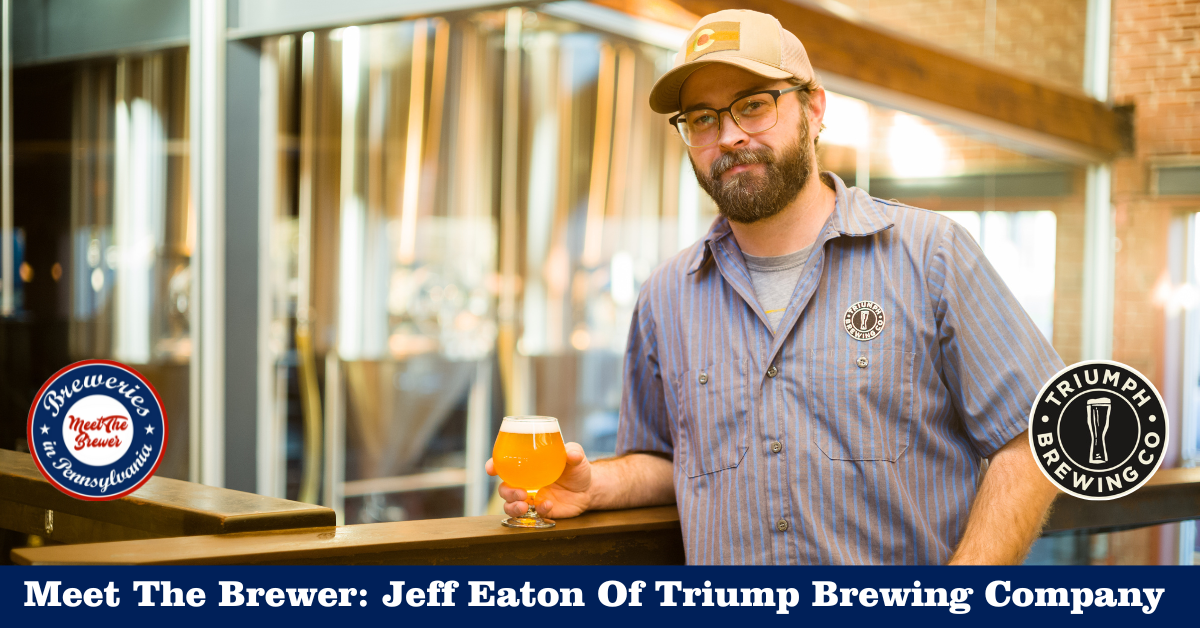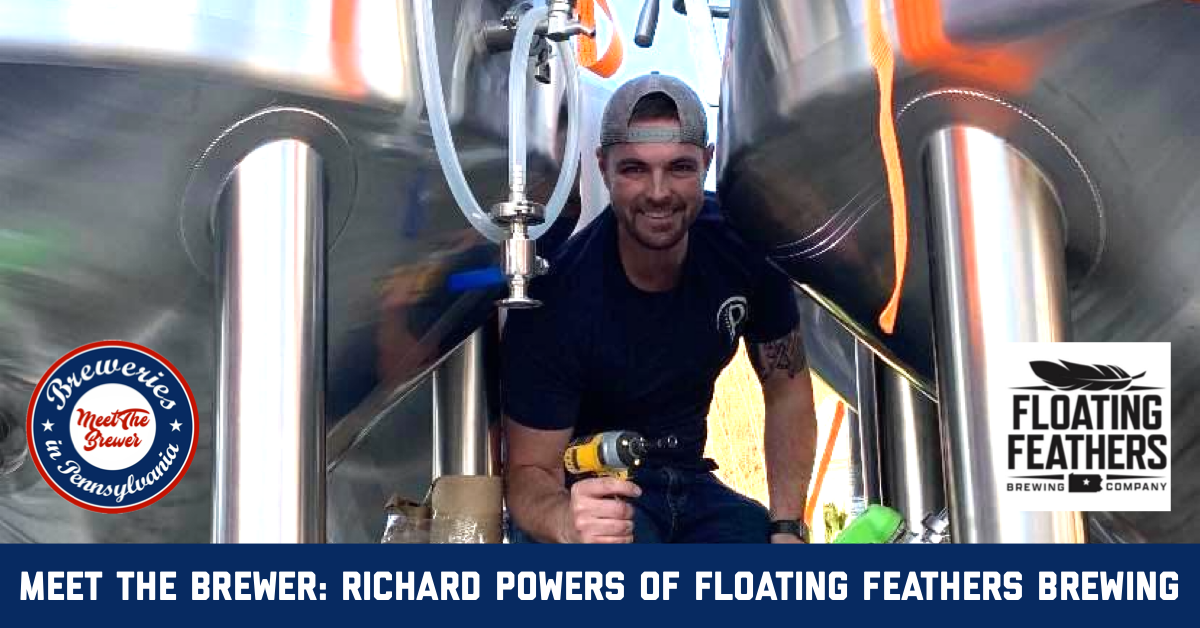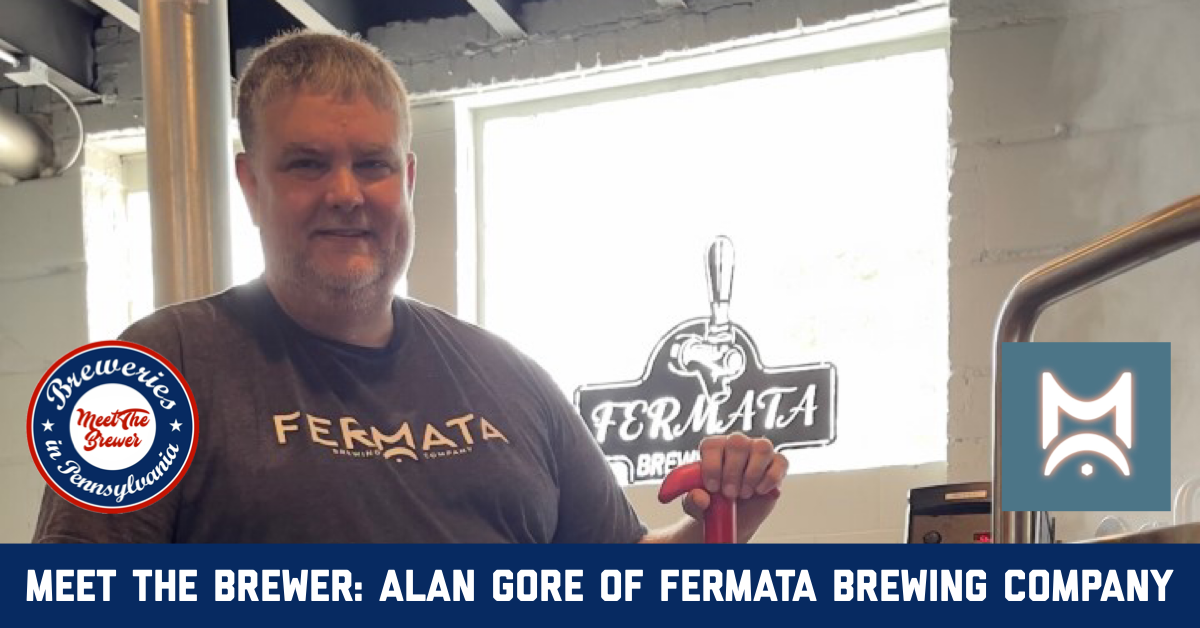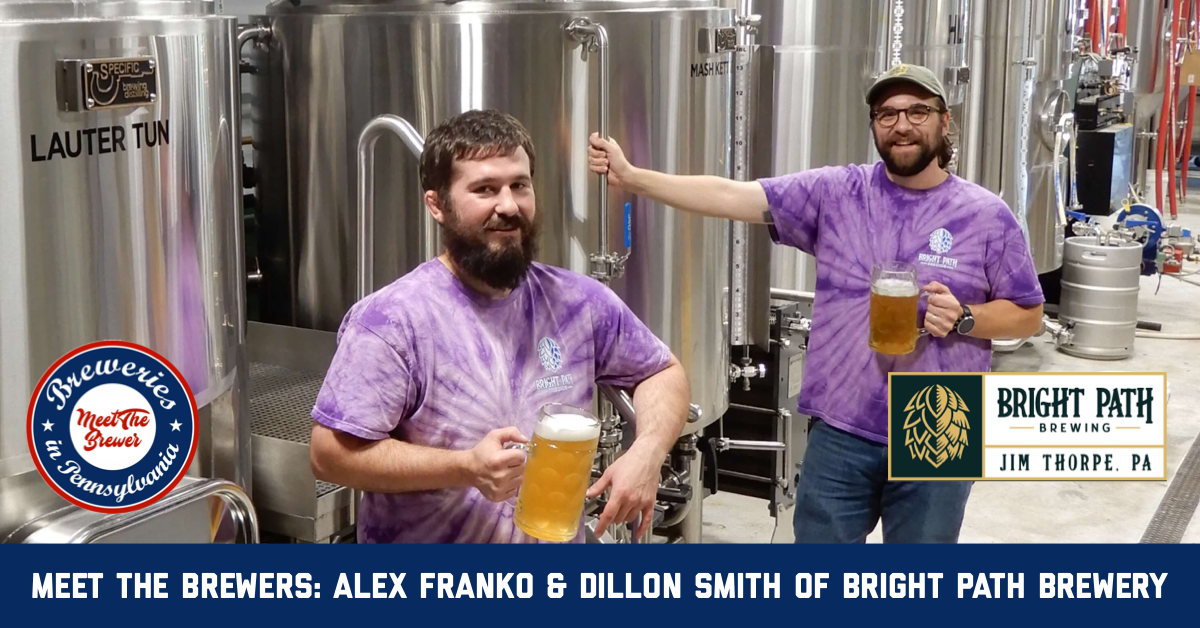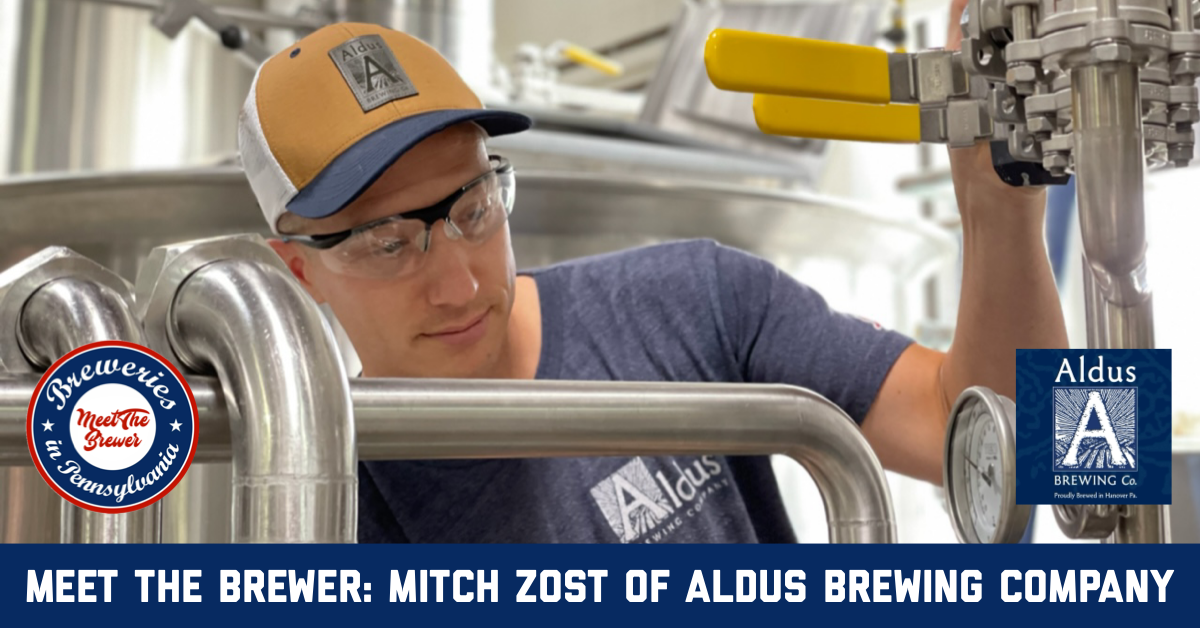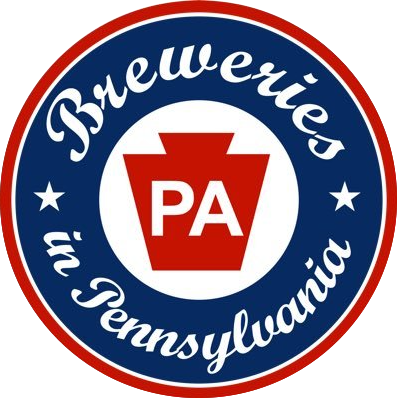Welcome to our “Meet The Brewer” series! Where we interview brewers in Pennsylvania, from breweries small to large. Let us know if you know anyone who should be featured, email us at [email protected].
Mechanistic Brewing Company was opened in June of 2019 in Clarion, PA, by Chelsea and George Alexander. The brewery produces a wide range of beer styles, so there is definitely something for everyone. George Alexander is the co-owner/head brewer at Mechanistic Brewing Company. Read more to find out his introduction to beer, important lessons he has learned so far, and more!
What was your introduction to craft beer?
Digging change out of our college sofa to buy one or two Belgian beers at a time from the bottle shop down the street. Belgian beers were about the only option that we were aware of that had flavor in State College in the ’90s.
How did you get started as a brewer?
Chelsea and I were living and working in DC and were trying to find a way to navigate a path back to PA. Running a brewery had been a long-term dream of ours and the perennial topic of discussion (e.g., if you had 5 taps, what beer styles would you have) on our walks around the city. However, our condo was very small and we couldn’t jump into brewing. Once we were able to move to PA in 2013, we built a ½ barrel electric brewery designed by Kal Wallner. This was a small-scale version of the system that we ultimately wanted to use at the brewery. It was an ideal system to learn and brew on. We still actually use it at the brewery now for sanitizing fermenters, brites, and kegs.

What style allows you to be the most creative, and why?
There are thousands of years of history on brewing beer and thousands of books and blogs dedicated to the art and science of brewing. With all of that information, I have taken the position of a student. There is always creativity from tweaking ingredients out of necessity (e.g., Sh*t, I ran out of crystal 60, what can I use instead?), out of personal preference (e.g., you may prefer Hallertau over Saaz hops), or individual process approaches (e.g., mashing at atypical temps, varying yeast pitch rates). However, for traditional beers-beers that have been brewed for decades if not centuries-it’s hard to imagine being able to improve upon those. For those beers, we tend to follow tradition with minor adjustments for modern ingredients and equipment.
For more modern beers like New England IPAs and sweet stouts, I think there is more room for adventure and opportunities for improvement. I still start with reading, prioritizing, and compiling the best information that I can find. While in grad school at the University of Nottingham, one of my roommates, who was/is much smarter than me, gently told me that 1 hour of time in the lab saves 6 hours of time in the laboratory. He told me this as I was spending nights in the lab and running an endless of array of experiments only to learn that others before me had not only conducted the same experiment but conducted it better. Since then, I try to learn everything I can by reading before venturing off on experimentation. I try to find a balance between reading enough literature and experimenting and learning by trial and error.
What was the first beer you ever brewed, and what did you learn from it?
The first beer I brewed was from a kit in college with my roommate and it was undrinkable. Lesson learned #1– there’s a reason for sanitation. It was quite a few years before I brewed again, which was an English brown ale. Lesson learned #2 – with quality ingredients, a reasonably sound process, and a strict adherence to cleanliness and sanitation can yield a fresh beer that often outperforms commercial examples. Fresh beer has a huge advantage.
Where do you see the craft beer industry heading in the next few years?
Chelsea and I ponder this question almost weekly. The pandemic has had an enormous impact on food and beverage establishments. Even in the best outcome, it seems like there will be long-term shifts. For example, it’s hard to imagine all of the same people crowding into compact indoor spaces again. Over the next couple of years, we’re anticipating a lot of local and regional travel (i.e., travel by car). We’re also expecting it to be more seasonal than usual. Beer + Summer has always been popular. We accelerating our plans for outdoor seating. Beer + Winter was a challenge before, but will likely struggle even more in the coming years. This winter we decided to close, which has been a welcome relief to catch our breath and to catch up on many improvement projects. We’re hoping that this coming summer will be an opportunity to return to some degree of normalcy and we can celebrate what we have.

Describe what it’s like to be a brewer in Pennsylvania.
While we were home-brewing and dreaming/researching about opening a brewery we constantly read how the brewing community was different than other industries – that breweries share information. We also read that with the rapid growth in the number of breweries that that would change. We’ve only been open less than two years, but it still feels like a small community to us. We continually meet enthusiastic brewers & breweries in PA, who are excited and motivated by collaboration. I think collaboration is in the DNA of breweries. That spirit is why so many of us opened breweries.
The regulations and taxes, let alone the actual physical work, is daunting. From figuring out who all of the Federal, State, and local regulators are, to understanding the building code, food code, and TTB and PLCB regulations, and then keeping up with the licensing and taxes is almost overwhelming. The singular thing that makes that worth the effort is the people.
Both of my wife’s and my families lived in Clarion for generations. Chelsea and I both moved around a lot. I lived in FL, CO, WY, MT, and England and Chelsea lived in Argentina, Chile, Peru, and Ohio (naturally). We lived in DC for 6 years before deciding to move back home. We knew many great people in Western PA and we wanted to raise our kids here. We also wanted to create another space to bring people together. That is the meaning behind our name – Mechanistic Brewing (beer as the mechanism to bring people together). We had no idea how many great people we would meet. Seeing old friends coming together and patrons making friends with other customers has been our fuel. Hearing the customers’ feedback on the beer is very rewarding, but seeing people laughing together is what makes all of the effort worthwhile.
Clarion and its people are unique, just like every town. That is an amazing thing about breweries and brewpubs – they can create an atmosphere for people to relax and have fun together and visitors can mingle with those people, those characters. Breweries are the opposite of road rage and social media. To think that everywhere you go, you are in the company of amazing and interesting people.
What is the inspiration behind your beer names?
Naming beers has been an ongoing sociology experiment. We don’t have flagship beers and we use a numbering system to differentiate the taps: 1 – Light and Crisp, 2 – Flavorful, 3 – Hoppy, 4 – Malty, 5 – Dark, 6 – Sour and Fruity. We started off naming the beers simply according to the style (e.g.., #1 might be a Pilsner and an English mild as a #4). It was boring but simple. As a scientist, I like the simplicity, accuracy, and lack of extraneous information. However, it didn’t work for beers like kveiks, hefeweizens, saisons. Even though many people would order by the number, many people still shied away from the harder to pronounce beers. Fortunately, my wife recognized it and stepped in. Now, we try to name the beers according to the feelings it evokes. It’s less scientific, historically accurate, or concise. However, when you land on the right name for a beer, it’s awesome to see people’s eyes light up when they taste it – OMG, it does taste like “…”.

What is your favorite beer to drink right now?
I like to make fun of my wife for being “seasonal” in what she likes to eat and drink, but I keep realizing how much better some food and beverage tastes in certain seasons. So, for me, there is one part that is seasonal. Another part of me craves what I’m researching. My favorite part of the brewing process is researching great beers – finding the best beers in each style, learning everything that I can about those beers, and then experimenting.
What is the most important lesson you learned in the beer industry so far?
That there is much more to great beer than the beer. A PB&J and a hot dog are generally not classified as gourmet, but all of the Michelin stars in the world have nothing on a PB&J on a backpacking trip or a hot dog at a ball game. Our surroundings affect our tastes from temperature, to sound, to scent, to décor, and especially the service. I am more of a cross country ski trip in the hemlocks guy than Disneyworld, but we have two amazing little girls, so we went. As expected, the girls had a blast and it was great to see and experience. What was also amazing and unexpected was the service. The Disney staff went 500 for 500 on service. Every one of them, all of the time. That opened our eyes to what service should be. There’s a time and place for a six-pack from the gas station, but many people that come to a brewery are there for the experience.
Thank you to George for talking with us! Make sure you visit Mechanistic Brewing Company for all the latest beers, news, information, and special events. And also follow Mechanistic on Facebook and Instagram!





